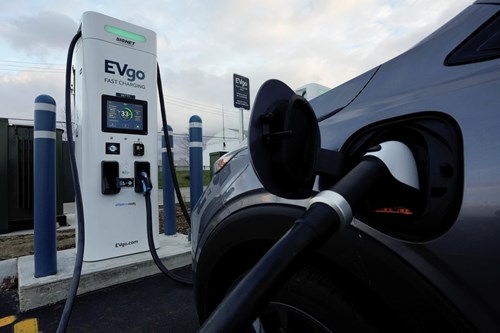"Policy discussions and mandates from Washington are very low on the list of things that people should be considering when they talk about disasters that have hit, and obviously saving lives and saving property is the first priority," says Larry Behrens of Power the Future. "The tools we use to do those two things are tools that need to be reliable, dependable, and there when we need them."
considering when they talk about disasters that have hit, and obviously saving lives and saving property is the first priority," says Larry Behrens of Power the Future. "The tools we use to do those two things are tools that need to be reliable, dependable, and there when we need them."
If you ask Behrens, EVs don't make the grade.
"When you look at the trucks of first responders, when you look at the trucks of those restoring electricity, they're not using electric-powered vehicles to get that done," says Behrens. "They're using fossil fuel-generated vehicles because that is what is proven to be dependable."

EVs face unique challenges in natural disasters. For starters, there’s dependence on electricity. Then their limited range impacts how far drivers can travel to evacuate, and charging station availability could also be a problem.
Behrens acknowledges that gas stations can run out of gas before, during and after something such as a hurricane and leave people with fossil fuel vehicles in a bind.
"Preparation ahead of these disasters is key, but look at the vehicles," says Behrens. "If you watch any of the pictures where people are being rescued, where people are being held, those vehicles utilized in that run on fossil fuels because it is way more dependable than any other electric vehicle."














